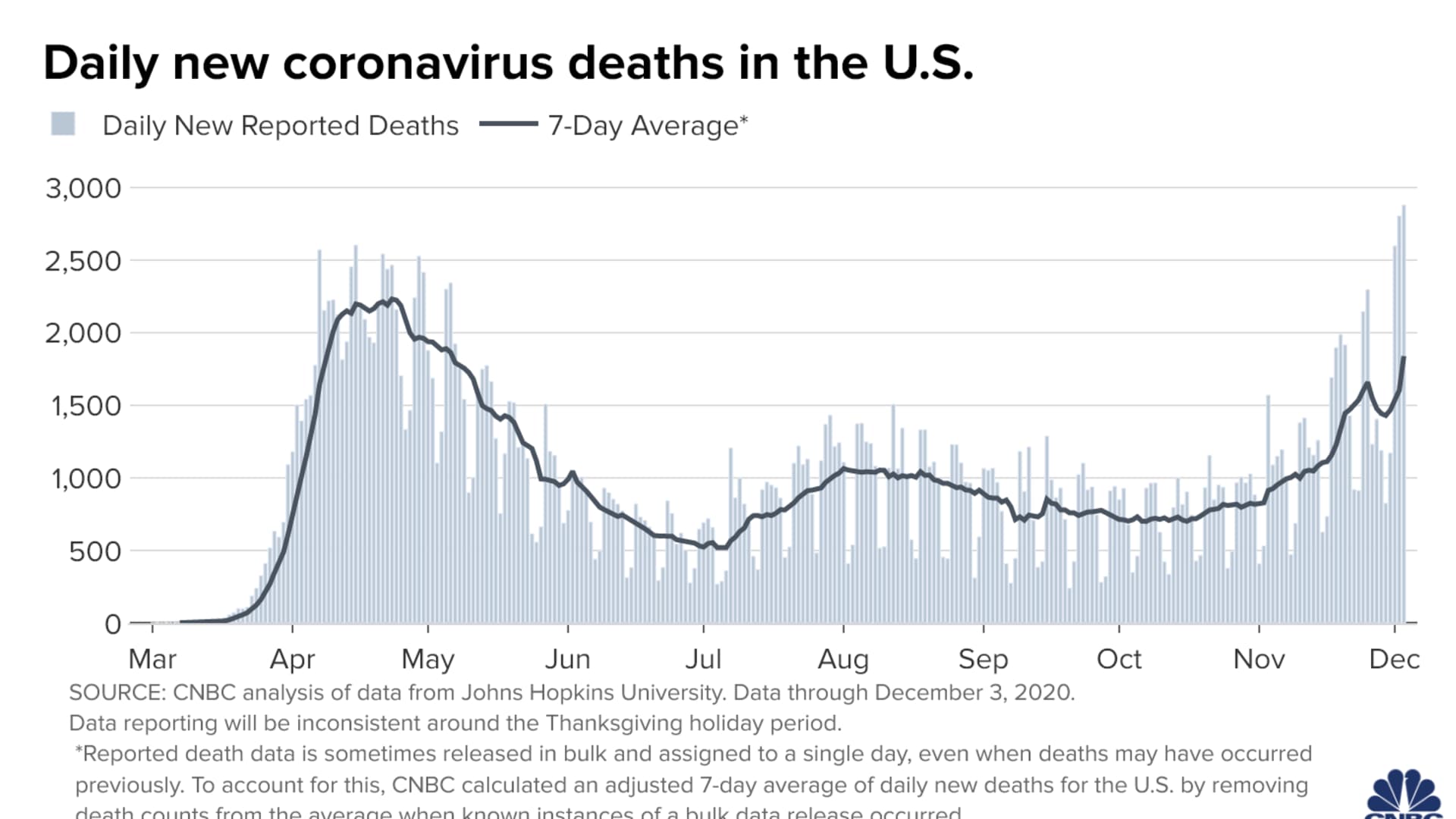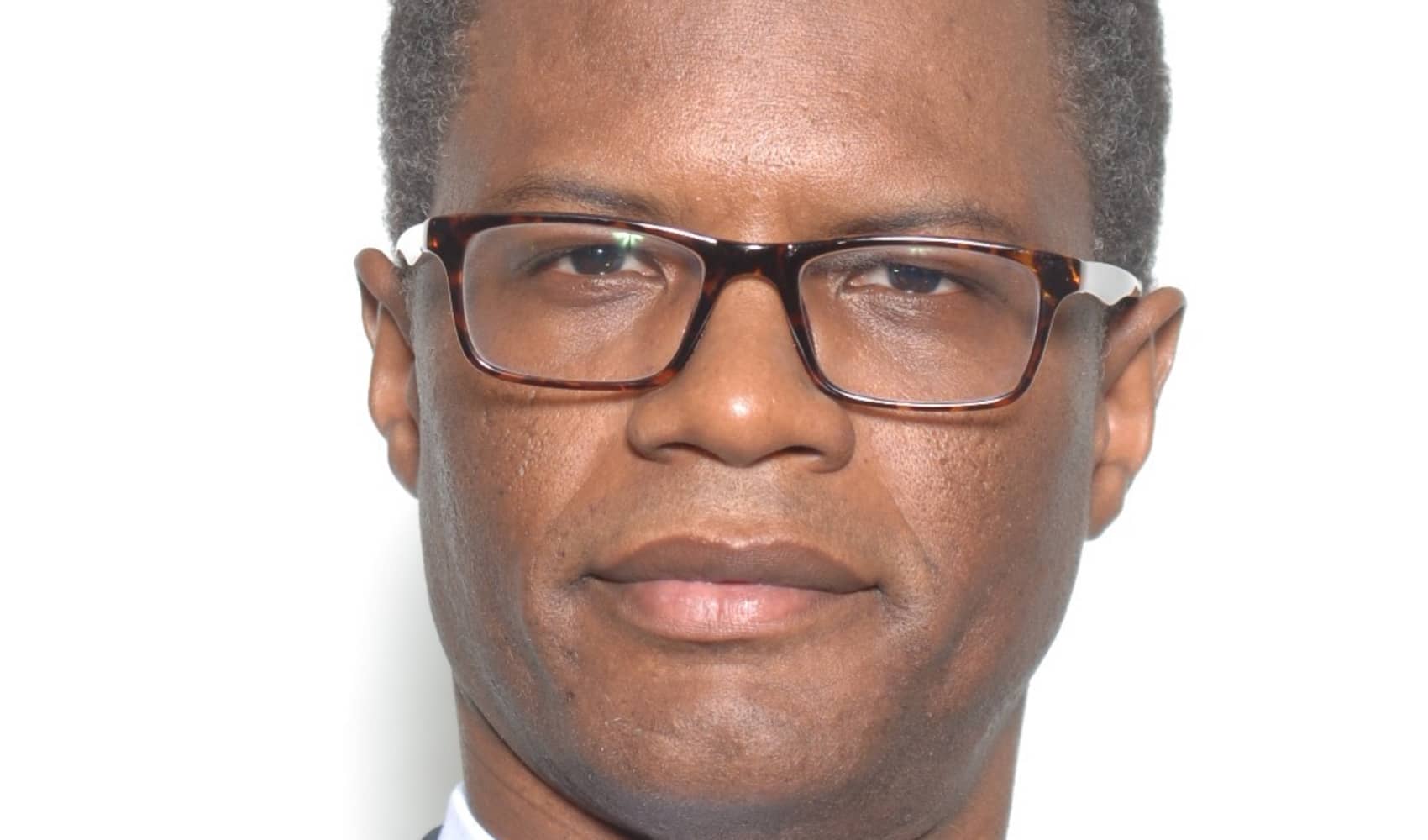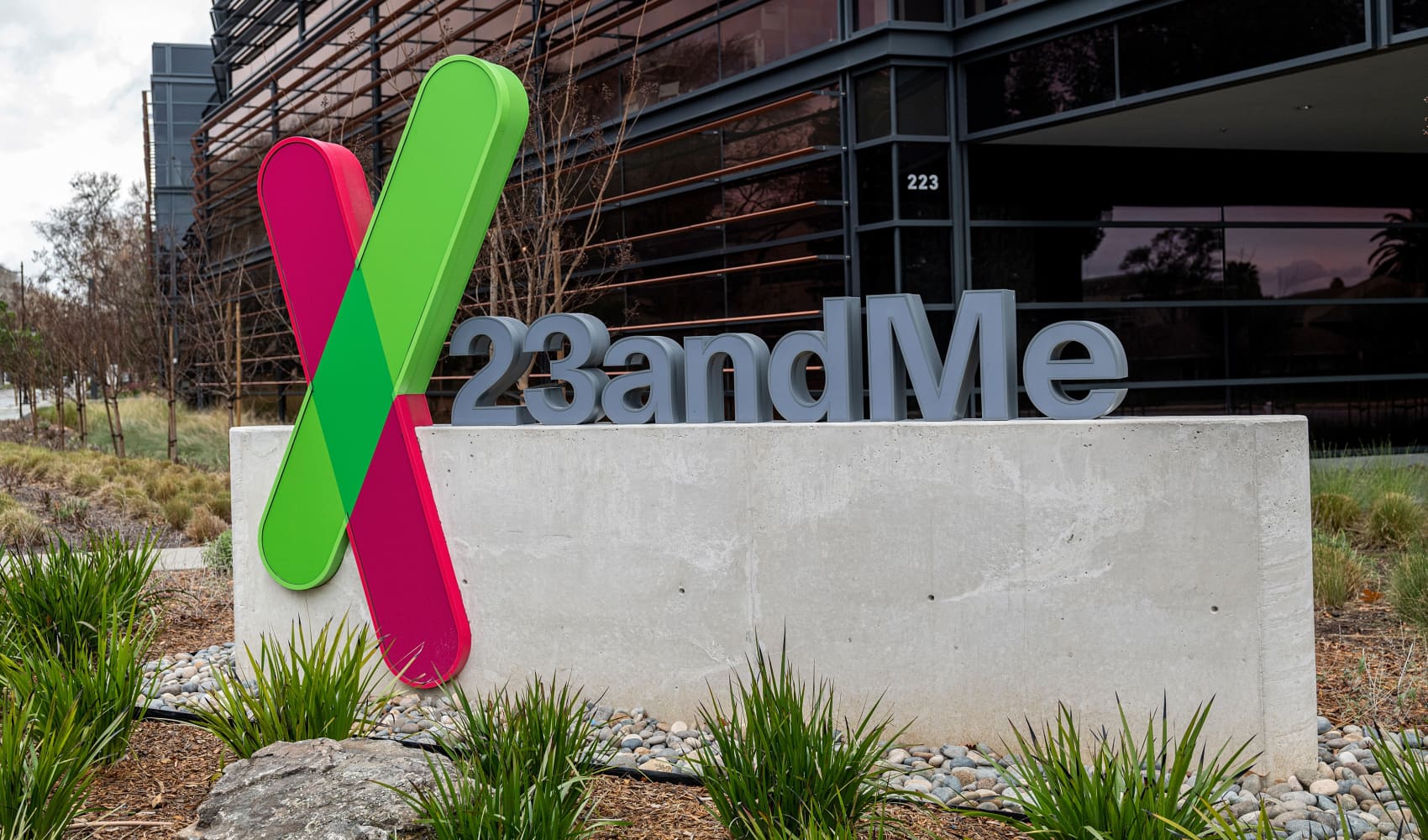
- "Squawk Box" co-host Andrew Ross Sorkin and CNBC bond maven Rick Santelli engaged in a heated on-air debate Friday over coronavirus restrictions.
- The back-and-forth mirrored the ongoing divide among many Americans throughout the pandemic and the derisiveness of the presidential election.
- The debate came after the release of a weaker-than-expected November jobs report, coinciding with a sharp rise in coronavirus cases and hospitalizations.
"Squawk Box" co-host Andrew Ross Sorkin and CNBC bond maven Rick Santelli engaged in a heated on-air debate Friday over coronavirus restrictions, a back-and-forth that mirrored the ongoing divide among many Americans throughout the pandemic and the derisiveness of the presidential race.
The intense disagreement over lockdowns between Sorkin and Santelli, which was also a central theme in the November election, came after the release of a weaker-than-expected November jobs report. The slowest pace of nonfarm payrolls growth since April coincided with a sharp rise in coronavirus cases and hospitalizations across the country, which led many governors and other local officials to reimpose virus mitigation measures.
Santelli — a veteran business personality and former bond trader, who typically reports for CNBC from the Chicago Mercantile Exchange — suggested that U.S. policymakers should reconsider the balance between public-health restrictions, particularly on restaurants, with permitting more economic activity. He alluded to the recent controversies involving politicians such as Democratic Gov. Gavin Newsom of California, who caught heat for attending a birthday dinner for a friend at a posh restaurant in the San Francisco Bay Area.
"Therefore there is actually, and should be, an ongoing debate as to why a parking lot for a big box store, like by my house, is jam-packed. Not one parking spot open," Santelli said. "Why are those people any safer than a restaurant with Plexiglas? I just don't get it. And I think there's a million of these questions that could be asked."
"I think it's really sad that when we look at the service sector and all the discussions we've had about job losses that that particular dynamic isn't studied more, isn't worked more, we don't put more people in a room and try to figure out ways so that these service-sector employees and employers can all come back in a safer way," said Santelli. "You can't tell me that shutting down, which is the easiest answer, is necessarily the only answer."
Money Report
Sorkin pushed back strongly against Santelli's remarks, noting public health experts are in widespread agreement that dining at indoor restaurants, where patrons have to take off their masks to eat and drink, presents a much-higher risk of coronavirus transmission than shopping at a retail store where all customers and employees have on masks.
Sorkin, also a financial columnist for The New York Times and editor-at-large of DealBook, said he wanted to remind viewers of where the scientific community stands, with many experts now recommending targeted restrictions on risky activities, such as indoor bars and restaurants, while permitting schools to hold in-person class, for example.
"The difference between a big-box retailer and a restaurant, or frankly even a church, are so different it's unbelievable," Sorkin said, before he was cut off by an enraged Santelli who declared, "I disagree."
"You can have your thoughts, and I can have mine," contended Santelli, whose on-air rant in 2009 in the wake of the financial crisis is seen as helping propel the rise of the conservative Tea Party movement.
"It's science. I'm sorry," Sorkin responded Friday. "It's science. If you're wearing a mask, it's a different story."
"Five hundred people in a Lowe's aren't any safer than 150 people in a restaurant that holds 600. I don't believe it. Sorry," said Santelli.
The exchange between Sorkin and Santelli comes about nine months after governors and other local officials in the United States first began to impose economic restrictions that they said were intended to slow the spread of the virus and take the pressure off hospitals inundated with patients.
At least 276,406 Americans have died from Covid-19, according to data compiled by Johns Hopkins University. Cumulative U.S. cases are now over 14.1 million. Both cases and deaths in the U.S. account for about a fifth of the world's totals.

The U.S. on Thursday logged a second record day of coronavirus deaths over 2,800 and the worst-single day of new cases: 217,664. The seven-day average of new daily cases of 179,473 was also a record. As of Thursday, 100,667 people were hospitalized with Covid-19, the most of the pandemic, according to the COVID Tracking Project, which is run by journalists at The Atlantic.
The partisan divide
Significant portions of the country have been divided during the pandemic, largely along party lines, with President Donald Trump and Republican-leaning voters favoring less public-health restrictions than Democrats. In the spring, Trump repeatedly said he wanted to "reopen" the economy and has frequently taken stances at odds with his own health advisors and at odds with scientific findings.
President-elect Joe Biden has been fiercely critical of Trump's response to the pandemic, making it a touchstone of his campaign. He chose to forgo large rallies, sometimes choosing instead to hold socially distant drive-in events, while Trump held outdoor speeches with supporters sitting close to one another.
In the weeks since being declared the election's winner by news organizations, Biden has continued to draw a contrast with Trump over the coronavirus. In an interview with CNN that aired Thursday, Biden said he plans to ask every American to wear a mask for 100 days to help bring the spread under control.
Trump, who contracted Covid-19 and recovered shortly before the November election, still won't concede to Biden, falsely claiming voter fraud, an assertion debunked even by his own attorney general and Justice Department.
While the U.S. economy has improved since its early devastation in April and May, when the strictest business restrictions were in place, there are still millions of Americans who remain unemployed. Some industries, such as autos and housing, have shown better-than-expected recoveries, while the travel and hospitality sectors continue to struggle.
Federal Reserve Chairman Jerome Powell, for his part, has noted throughout the pandemic that a strong economic recovery is not independent of the public health situation in the U.S. "The path forward for the economy is extraordinarily uncertain and will depend in large part on our success in containing the virus," Powell said in late June.
"A full recovery is unlikely until people are confident that it is safe to reengage in a broad range of activities," the top central banker added in his remarks at the time to the House Financial Services Committee. "The path forward will also depend on the policy actions taken at all levels of government to provide relief and to support the recovery for as long as needed."
Vaccine optimism
The U.S. finds itself in the grips of its third Covid-19 surge while regulatory clearance for a vaccine to prevent the disease could be just weeks away, offering optimism in a challenging period for the country.
"The reality is December and January and February are going to be rough times," Centers for Disease Control and Prevention chief Dr. Robert Redfield said Wednesday. "I actually believe they're going to be the most difficult in the public health history of this nation, largely because of the stress that's going to be put on our health-care system."
At the same time, the Food and Drug Administration is meeting this month to consider emergency use applications for two different Covid-19 vaccines. Distribution and the first round of vaccinations, for health-care workers and long-term care facility residents, could begin in just a few weeks.
These contrasting realities have colored the latest debate over imposing another set of health restrictions this fall and winter. In November, former FDA chief Dr. Scott Gottlieb urged Americans to stay home and take other steps to reduce virus transmission, calling it "a temporary pain." He added, "This is really one last surge of infection that we have to grapple with. I do believe 2021 is going to be better."
Disclosure: Scott Gottlieb is a CNBC contributor and is a member of the boards of Pfizer, genetic testing start-up Tempus and biotech company Illumina. Gottlieb also serves as co-chair of Norwegian Cruise Line Holdings′ and Royal Caribbean's "Healthy Sail Panel."






